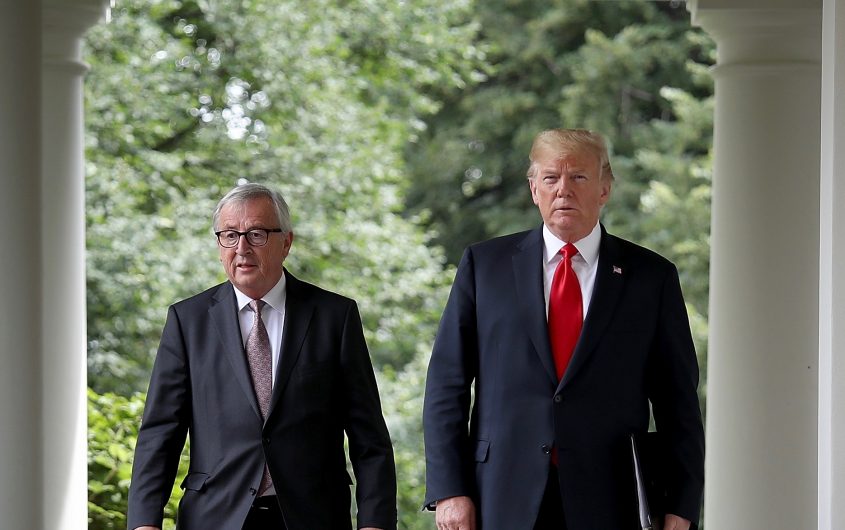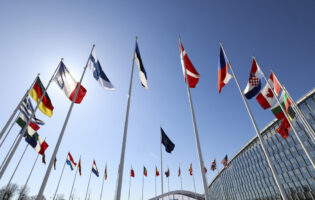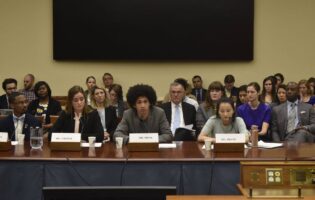
Win McNamee/Getty Images
Making the Atlantic Great (Again)? Prospects for New U.S.-EU Trade Negotiations

Peter S. Rashish
Vice President; Director, Geoeconomics Program
Peter S. Rashish, who counts over 30 years of experience counseling corporations, think tanks, foundations, and international organizations on transatlantic trade and economic strategy, is Vice President and Director of the Geoeconomics Program at AICGS. He also writes The Wider Atlantic blog.
Mr. Rashish has served as Vice President for Europe and Eurasia at the U.S. Chamber of Commerce, where he spearheaded the Chamber’s advocacy ahead of the launch of the Transatlantic Trade and Investment Partnership. Previously, Mr. Rashish was a Senior Advisor for Europe at McLarty Associates, Executive Vice President of the European Institute, and a staff member and consultant at the International Energy Agency, the World Bank, UNCTAD, the Atlantic Council, the Bertelsmann Foundation, and the German Marshall Fund.
Mr. Rashish has testified before the House Financial Services Subcommittee on International Monetary Policy and Trade and the House Foreign Affairs Subcommittee on Europe and Eurasia and has advised three U.S. presidential campaigns. He has been a featured speaker at the Munich Security Conference, the Aspen Ideas Festival, and the Salzburg Global Seminar and is a member of the Board of Directors of the Jean Monnet Institute in Paris and a Senior Advisor to the European Policy Centre in Brussels. His commentaries have been published in The New York Times, the Financial Times, The Wall Street Journal, Foreign Policy, and The National Interest, and he has appeared on PBS, CNBC, CNN, and NPR.
He earned a BA from Harvard College and an MPhil in international relations from Oxford University. He speaks French, German, Italian, and Spanish.
Issue Brief 58
The idea of a free trade agreement between the United States and the European Union can seem at once inevitable and impossible. Over the last twenty-five years, as the EU has grown from fifteen to twenty-eight member states to become an economic superpower, the multilateral trading system enshrined in the World Trade Organization has turned more ungovernable. As a result, the logic of leveraging a transatlantic economic pact that would encompass nearly half of global GDP to bolster and reform the seventy-year-old rules-based, liberal economic order has become increasingly compelling.
At the same time, however, the very complexity involved in bringing together two economic giants, roughly equal in size, each convinced of the superiority of its commercial, financial, and regulatory model, presents a daunting task to practitioners of economic statecraft. It should not be forgotten that even without a free trade agreement (FTA), the transatlantic economy has become deeply integrated to the tune of more than $1 trillion in annual trade in goods and services, a foreign investment stock of $5 trillion, and 9 million jobs directly created by U.S. and EU companies in each other’s market. Given this impressive market-driven inter-weaving of the two economies, it is legitimate to ask whether the U.S. and the EU need to be in a hurry to formalize their relationship through an FTA.









